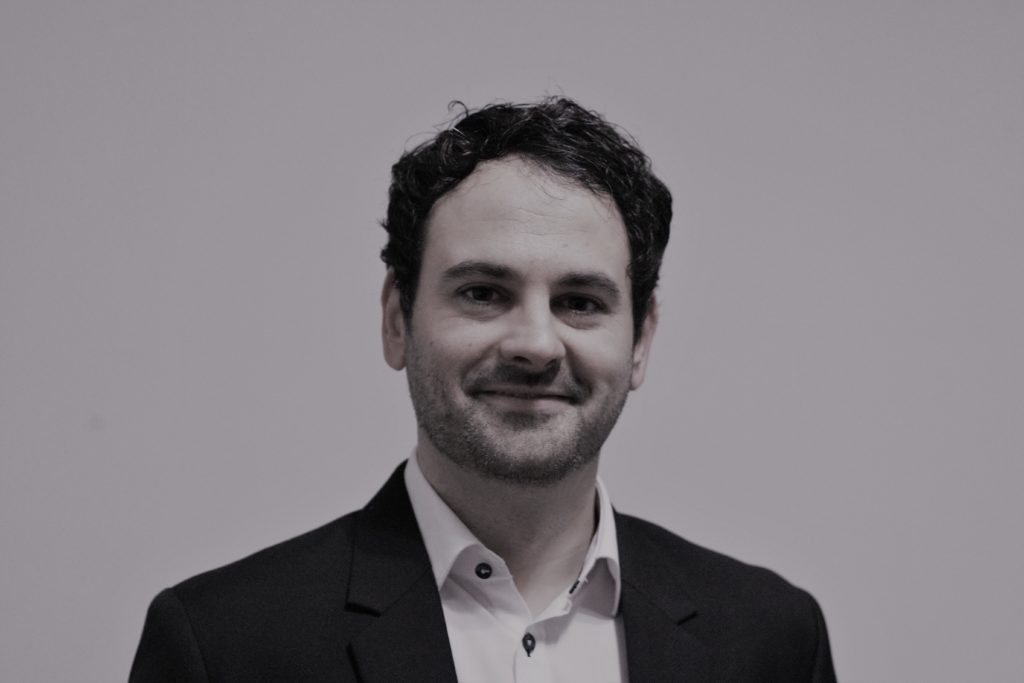PI Berlin is planning to open a new office in Spain, what services will it offer?
PI Berlin is a technical consultancy based in Berlin and focused exclusively on PV. Our service portfolio covers all phases of a project: from factory audits and production supervision to … technical due diligence of plants in operation, including engineering review and production study, module tests in one of our two accredited laboratories, or supervision of work and start-up. We work mainly for developers, banks, government entities and specialists, some of which were former customers at the early stages of development of PV in Spain, which date back to the past decade. We also have clients for whom we have worked in other markets and who have now put the spotlight on Spain. After 10 years, we return to Spain with much enthusiasm.
What do you think of the growth expectations of the Spanish market? Do you think it has now become a mature market, compared to 10 years ago?
Expectations cannot be better, I think this is something that everyone is aware of. The fact that we have decided to settle in Spain in 2019, and not in 2007, is mainly due to the fact we now perceive signs of durability and sustainability in the Spanish PV market, and this impels us to take the step. I believe that the maturity of the market is not only provided by the laws or a favorable political conjuncture, but also by the market players who will be the main [drivers] responsible for crystallizing a collective dream into a tangible reality, in line with current expectations. [That sentiment is echoed by] specialists, manufacturers, consultants, O&M companies or investment funds, many of which come home reinforced by learning in other markets and with many hours of [experience].
Are there recurring quality problems in Spain? What are the most frequent problems due to weather, the origin of equipment and installation?
I think the problems that Spain is going to face will not differ much from those we have been able to observe in other markets with similar conditions, that is, exponential growth and the absence of subsidies.
In this context, I see five major challenges today: one, commercial risks in the management of product and performance guarantees resulting from an increasing complexity in contracts when, for example, a developer assumes the purchase of the main equipment while subcontracting the rest of the EPC and planning to sell the plant to a third party, here there cannot be any loose ends from the technical and legal point of view. Two, knowing and mitigating the risks and unexpected degradation associated with new module technologies, for example, temperature-induced degradation in PERC modules. Three, multi-million dollar investments with greater financial risk and where minimum deviations in returns can have disastrous consequences. Four, to know and fight the environmental stress factors that occur to a greater or lesser extent in the Iberian peninsula due to their climatic heterogeneity, and that are responsible for an accelerated degradation of equipment. And finally, five, do not underestimate the key role of quality control. Sometimes [deciding whether or not to invest] €15,000 in a factory audit to address inaccurately a production study, can be key aspects in the bankability of a project. There are four or five key issues in the quality control of a project, and most of them occur before installing the first module.
Are there Spanish entities for the certification of products, as there are in Germany? Is certification enough to guarantee quality?
The legislation applied in Spain in terms of PV, is basically international (IEC) and regional (EN), or similar regulations. These standards and guidelines are, however – here and in the rest of the world – several steps behind the industry, and by themselves are not able to ensure the durability and functionality of the components of a PV plant. There is a great amount of good industrial practices that have not yet been translated into standards, and that should be part of the technical requirements of a tender, an EPC contract or a module supply agreement. Certification is a necessary condition, but not enough.
Following the previous question, operation procedure 12.2 – Facilities connected to the transmission network and generating equipment: minimum design, equipment, operation, commissioning and safety requirements – is in force in Europe, and was approved in Spain in February. Do you think quality control is also necessary for modules manufactured in Europe?
Yes. Nowadays it cannot be said the European modules are better than, for example, Chinese, or vice versa. In recent years we have carried out 245 factory audits for 116 manufacturers of modules worldwide, and we have a solid database that helps us know the market well and advise our clients correctly. Technological challenges, both at the conceptual level and at the level of assembly or characterization, are common for many manufacturers, so a developer must address quality control when hiring a manufacturer for the first time, with the same level of detail regardless of whether it is a Tier 1 or Tier 3 [manufacturer]. We have had cases in which Tier 1 manufacturers have presented serious deviations in the manufacturing process, while in other cases, Tier 2 or Tier 3 manufacturers have surprised us with very good results.
Finally, we must bear in mind that many European manufacturers sell modules “made in [the] EU” even though the factories are located in China or Malaysia, while those that manufacture in Europe buy, in many cases, components such as glass or aluminum in China. Some Chinese manufacturers have even acquired European manufacturers in bankruptcy [proceedings], thus installing themselves directly in European territory.
Popular content
By this I mean that the manufacture and supply of PV components, including modules, is not carried out within the framework of a single country or continent. In other words, today’s European modules are more Chinese than they were 10 years ago.
At the beginning of September, Brussels decided to eliminate the minimum import price applied to imports of Chinese modules and cells. What repercussions will this measure have for European manufacturers? What does PI think about anti-dumping or local content requirements?
In principle, it is not bad news for everyone. The anti-dumping was at the time a defense against artificially low prices that led to the disappearance of many manufacturers. But this in turn led European manufacturers of certain components of the PV modules to raise their prices, in view of the fact that they had escaped the Chinese competition. Paradoxically, now that the prices of PV modules have reached very low values, anti-dumping measures appear to be detrimental to the manufacturers or importers of modules, because they are forced to buy artificially high-priced products. Today, anti-dumping measures are causing problems for certain players in the sector and Europe needs cheap imports to survive in the market. Even so, and once the borders open, European manufacturers will have to contribute something different to excel, be it an excellent after-sales [service], higher performance guarantees, longer product warranties or more advanced evidence of durability in both second and third generation modules.
The anti-dumping measures helped at the time, when the prices of the Chinese modules were below the real value of the market. Nowadays, and since this has dropped to almost a tenth of the price of 10 years ago, these protectionist measures have reached a certain degree of obsolescence.
EPC contractors and installers have very tight deadlines and margins in Spain. Does this affect quality?
Clearly. Most of the failures that are committed in the development, construction and operation phases are easily avoidable with a relatively simple quality control plan. At this point I would like to emphasize that this quality control should not only focus on the modules, but should be extended to other components of the plant, to the input values of the financial model, to the guarantees of the contracts or to the maintenance plan, among others. Some developers still believe that a low CAPEX implies a high return and in many cases it happens to be the opposite: the plant begins to show unexpectedly low performance rates as a result of systemic failures, which translates into a production lower than forecast or a value of retail sale in the secondary market. Today, for less than 0.3% of CAPEX, a developer can contract a complete quality control package covering all phases: from the factory audit to the supervision of the start-up. In the case of the specialists, the business model is obviously another matter, many disassociate themselves from the project after completing the contract guarantee, with which they are interested in a low CAPEX and short installation times. This is where the consultant, acting as property engineer, must ensure the durability and functionality of the project beyond the expiration date of the EPC guarantee, and for this purpose the consultant will suggest supporting the EPC contract with clauses that reduce risk for the investor.
In recent years, almost 90% of manufacturers in Spain have closed or are in bankruptcy proceedings. Do you think that with the new forecasts for renewable installation, new manufacturers will arise, or is it not worth the investment?
I believe that photovoltaics is here to stay. The situation is now very different from that of the beginning of PV in Spain, and this will be noted with the creation of many direct and indirect jobs. Industrial production will be reinforced in all segments, and that of module manufacturing is one of them. While many Spanish manufacturers have been forced to close, there have been some who have resisted and have remained active. To these and to those who join them, I think good years are coming.
Here is a question received by our editorial team by email: Will we end up depending on Chinese manufacturing as we now depend on Arab oil?
In fact, we already depend heavily on China, both in relation to the modules and other components. In 2017, more than 90% of the modules were manufactured in China and 53 % of the world's production was used to build plants in this country. If we add to this that some Chinese manufacturers are already producing directly in markets such as India, I think it is clear the role that China plays at this time in the development of the sector. At the current level of prices, the demand for modules in China is almost like a thermometer of global supply stability, so the influence of the country is multifaceted, and will not change in the short term.
This content is protected by copyright and may not be reused. If you want to cooperate with us and would like to reuse some of our content, please contact: editors@pv-magazine.com.



By submitting this form you agree to pv magazine using your data for the purposes of publishing your comment.
Your personal data will only be disclosed or otherwise transmitted to third parties for the purposes of spam filtering or if this is necessary for technical maintenance of the website. Any other transfer to third parties will not take place unless this is justified on the basis of applicable data protection regulations or if pv magazine is legally obliged to do so.
You may revoke this consent at any time with effect for the future, in which case your personal data will be deleted immediately. Otherwise, your data will be deleted if pv magazine has processed your request or the purpose of data storage is fulfilled.
Further information on data privacy can be found in our Data Protection Policy.